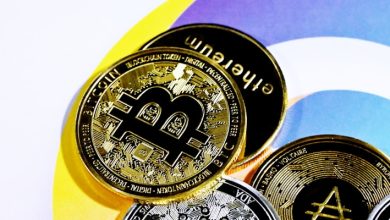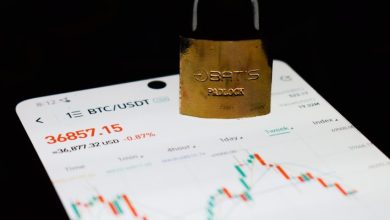The Future of Blockchain Gaming: Play-to-Earn and Beyond

- The Rise of Blockchain Gaming: A New Era of Play-to-Earn Models
- Exploring Decentralized Gaming Platforms and Their Impact on the Industry
- NFTs in Gaming: How Non-Fungible Tokens are Revolutionizing the Gaming Experience
- The Evolution of In-Game Economies: How Blockchain is Reshaping Virtual Worlds
- Challenges and Opportunities in the Integration of Blockchain Technology in Gaming
- Future Trends in Blockchain Gaming: What to Expect in the Coming Years
The Rise of Blockchain Gaming: A New Era of Play-to-Earn Models
Blockchain gaming is ushering in a new era with the rise of play-to-earn models. This innovative approach allows players to not only enjoy games but also earn real rewards in the form of cryptocurrency. By leveraging blockchain technology, developers can create decentralized gaming ecosystems where players have true ownership of in-game assets.
One of the key advantages of play-to-earn models is the ability to monetize time spent playing games. Instead of traditional games where players invest time and money with no tangible returns, blockchain games offer a way for players to earn rewards that have real-world value. This has the potential to revolutionize the gaming industry and attract a new wave of gamers looking to profit from their passion.
Furthermore, play-to-earn models promote a more inclusive gaming environment by removing barriers to entry. Players from all walks of life can participate in blockchain games and earn rewards based on their skill and dedication. This opens up opportunities for individuals in regions with limited access to traditional banking systems to participate in the global economy through gaming.
Exploring Decentralized Gaming Platforms and Their Impact on the Industry
Decentralized gaming platforms have been gaining momentum in the gaming industry in recent years, offering players a new way to engage with games while also earning rewards. These platforms utilize blockchain technology to create a transparent and secure environment for players to buy, sell, and trade in-game assets. By leveraging blockchain technology, decentralized gaming platforms can provide players with true ownership of their in-game assets, allowing them to transfer or sell them outside of the game environment.
One of the key advantages of decentralized gaming platforms is the ability for players to earn real-world value for their time and effort spent in-game. Through a play-to-earn model, players can earn cryptocurrencies or other digital assets by completing in-game tasks or challenges. This has the potential to revolutionize the gaming industry by incentivizing players to spend more time in-game and creating new opportunities for earning income through gaming.
Additionally, decentralized gaming platforms can help to address issues of fraud and cheating that have plagued traditional gaming environments. By utilizing blockchain technology to store game data and transactions, decentralized gaming platforms can ensure that all in-game actions are transparent and secure. This can help to create a fairer and more trustworthy gaming environment for players, ultimately enhancing the overall gaming experience.
Overall, decentralized gaming platforms have the potential to have a significant impact on the gaming industry, offering players new ways to engage with games and earn rewards. As blockchain technology continues to evolve, we can expect to see even more innovative decentralized gaming platforms emerge, further shaping the future of gaming.
NFTs in Gaming: How Non-Fungible Tokens are Revolutionizing the Gaming Experience
NFTs have been making waves in the gaming industry, offering players a new way to truly own in-game assets. These non-fungible tokens are unique digital items that are stored on the blockchain, making them one-of-a-kind and easily verifiable. This means that players can buy, sell, and trade their NFTs with confidence, knowing that they have full ownership of these virtual items.
By incorporating NFTs into gaming, developers are revolutionizing the gaming experience by allowing players to truly own the items they acquire in-game. This opens up a whole new world of possibilities, from creating rare and valuable items to allowing players to monetize their gaming experience. Players can now earn real money by playing games, leveling up, and collecting valuable NFTs.
Not only does this create a new revenue stream for gamers, but it also adds a new layer of excitement and engagement to the gaming experience. Players are now incentivized to spend more time in-game, grinding for rare items and working towards building their virtual collections. This play-to-earn model is changing the way we think about gaming, turning it into a profitable venture for dedicated players.
The Evolution of In-Game Economies: How Blockchain is Reshaping Virtual Worlds
The evolution of in-game economies in the realm of blockchain gaming has been a game-changer for virtual worlds. Blockchain technology has allowed for the creation of decentralized, transparent, and secure economies within games, enabling players to truly own their in-game assets. This shift has opened up new opportunities for players to earn real-world value through their gameplay, creating a paradigm shift in how we view virtual economies.
One of the key ways in which blockchain is reshaping in-game economies is through the use of non-fungible tokens (NFTs). These unique digital assets are stored on the blockchain, giving players true ownership and the ability to buy, sell, and trade them outside of the game environment. This has led to a burgeoning market for rare in-game items, with some fetching prices in the thousands or even millions of dollars.
Another important aspect of blockchain-based in-game economies is the concept of play-to-earn. In traditional games, players spend hours grinding for in-game currency or items with little to no real-world value. However, with blockchain games, players can earn valuable tokens simply by playing the game and completing tasks. This has the potential to revolutionize the gaming industry, turning players from mere consumers into active participants in the economy of the game.
Challenges and Opportunities in the Integration of Blockchain Technology in Gaming
One of the main challenges in integrating blockchain technology into gaming is the scalability issue. Blockchain networks like Ethereum can become congested during times of high traffic, leading to slow transaction speeds and high fees. Developers are working on solutions like layer 2 scaling solutions to address this issue and make blockchain gaming more accessible to a larger audience.
Another challenge is the lack of user-friendly interfaces for interacting with blockchain games. Many players are not familiar with concepts like wallets and private keys, which can be a barrier to entry for new users. Developers are working on creating more intuitive interfaces to make it easier for players to participate in blockchain games without needing a deep understanding of the technology behind them.
Despite these challenges, there are many opportunities for integrating blockchain technology in gaming. One of the most exciting opportunities is the concept of play-to-earn, where players can earn cryptocurrency by playing games and completing in-game tasks. This has the potential to revolutionize the gaming industry by creating new economic incentives for players and developers alike.
Future Trends in Blockchain Gaming: What to Expect in the Coming Years
In the coming years, the blockchain gaming industry is poised to experience significant growth and development. As technology continues to advance, we can expect to see a number of key trends emerge that will shape the future of gaming on the blockchain.
One major trend that is expected to gain traction is the concept of play-to-earn gaming. This model allows players to earn cryptocurrency and other digital assets while playing games, creating new opportunities for monetization and engagement. This shift towards a more decentralized and player-centric approach is likely to revolutionize the gaming industry as we know it.
Another trend to watch out for in the future is the continued integration of non-fungible tokens (NFTs) into blockchain games. NFTs allow for unique in-game assets to be tokenized and traded, providing players with true ownership of their virtual items. This innovation has the potential to greatly enhance the gaming experience and create new avenues for creativity and customization.
Additionally, advancements in blockchain technology are expected to improve scalability and interoperability within gaming ecosystems. This will enable seamless cross-platform gaming experiences and increased interaction between different games and virtual worlds. As blockchain technology continues to mature, we can anticipate a more connected and immersive gaming environment for players to enjoy.
Overall, the future of blockchain gaming is bright and full of potential. With play-to-earn mechanics, NFT integration, and enhanced technology on the horizon, players can look forward to a more engaging, rewarding, and interconnected gaming experience in the years to come.



